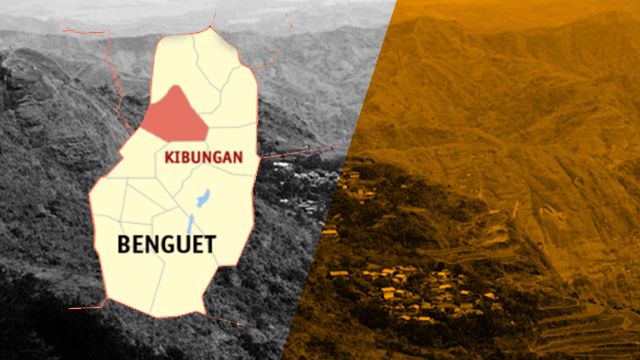KIBUNGAN, Benguet – Indigenous peoples (IPs) from the remote village of Badeo are demanding that they must be involved in the voting on whether or not to give consent to the ambitious 500-megawatt pump storage project of the controversial Coheco Badeo Corporation if the Cordillera office of the National Commission on Indigenous Peoples (NCIP) finds that that the FPIC process conducted by the members of the free and prior consent (FPIC) team is flawed which led to the questionable yes vote for the project.
Sources, who requested anonymity for fear of reprisal by former provincial and municipal officials who are actually behind the railroading of the process, claimed they want their voices heard regarding the project because the supposed members of their Council of Elders did not actually represent their position which was against the implementation of project but instead, they succumbed to the manipulations of the FPIC team and the alleged bribery by some company officials to most of their leaders for them to secure a positive vote.
The sources explained voting individually for or against a development project has been part of their customary practices like other tribes in the region that is why they demanded that their NO vote should have been upheld. Instead the NCIP FPIC team manipulated the proceedings and allegedly influenced the members of the Council of Elders to take say YES even if the common stand was for the pump storage project to be shelved and await the completion of the 60-meagawatt run-of-river project in nearby Kapangan town for them to see whether this smaller project that they endorsed will really bring progress and development to their remote village.
A new team from the NCIP-CAR will be visiting Kibungan this week to validate the veracity of the various petitions regarding the irregularities in the conduct of the FPIC process to guide decision-makers on whether or not to declare the process void because of the serious violations committed not only by the FPIC team but also the company itself, particularly on the issue of transparency.
The sources added the FPIC team should have given due course to the signed resolution of the landowners who expressed their outright objection to the project because the consent of the elders will be useless if the affected landowners will not allow their properties to be used for the project, thus, there will surely be a deadlock during the negotiations because the stand of the landowners is clear that they will not allow the project to push through.
According to them, the failure of Coheco Badeo Corporation to inform the IPs of their minimum royalty and the lukewarm attitude of the company officials on the questions of benefits for the host communities just shows the company’s lack of sincerity in dealing with them. The community know of previous negotiations for the alleged sale of the company to other foreign corporations which indicate the lack of concern by the company for the welfare of the host communities and are only after their gain from the developer’s fee to be derived from the sale of the company.
The sources asserted the earlier pronouncement of NCIP-CAR officials that Coheco Badeo Corporation has never been transparent to the IPs about the project should be a cause for alarm because the IPs stand to be shortchanged once the company is sold allegedly to a Chinese energy corporation and other interested companies once the proponent secures the consent of the IPs.
The sources argued that the reason why the dummy owners of the company are awaiting the consent of the IPs before finalizing the sale of the company to interested buyers is to gain a better bargaining position for a higher price packaged with their consent.
The IPs challenged the NCIP-CAR validation team to declare the previous FPIC process as invalid and to allow the IPs of Badeo to vote for or against the project through the genuine exercise of seeking their free, prior and informed consent.
The sources lamented the actions of some former provincial and municipal officials for their direct interference during the FPIC process wherein they called and sent text messages to members of the Council of Elders asking them to support the project knowing fully well that this is actually selling the consent of their own people because they know the company ownership will be diluted when other investors will buy shares into the company. The aggrieved ancestral domain owners claim that these ex-officials are preparing for the next elections so they do not care if they sell their own people as long as they raise their own campaign funds.
By HENT













